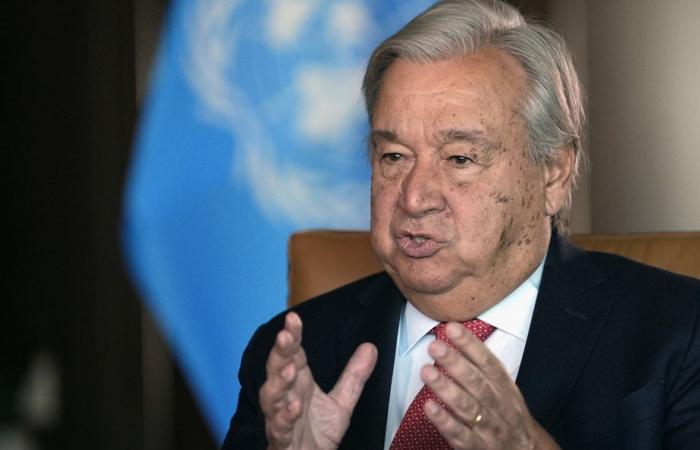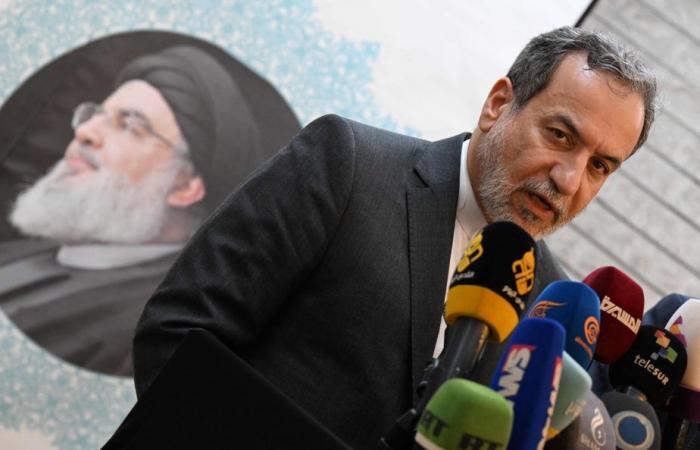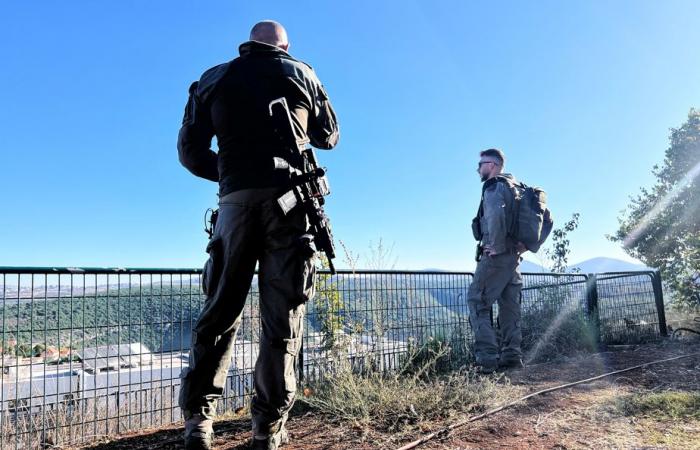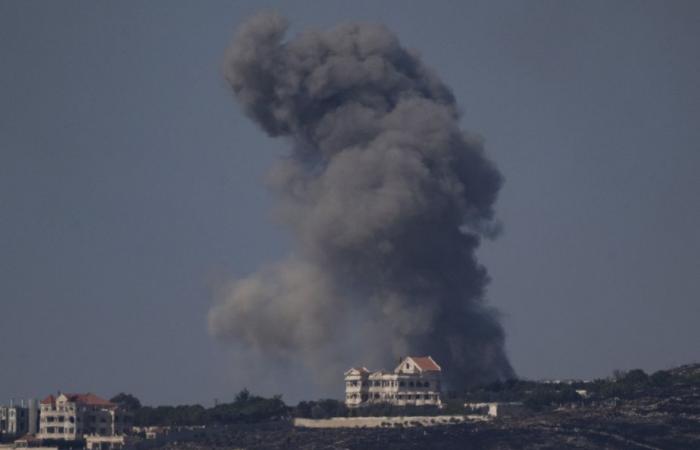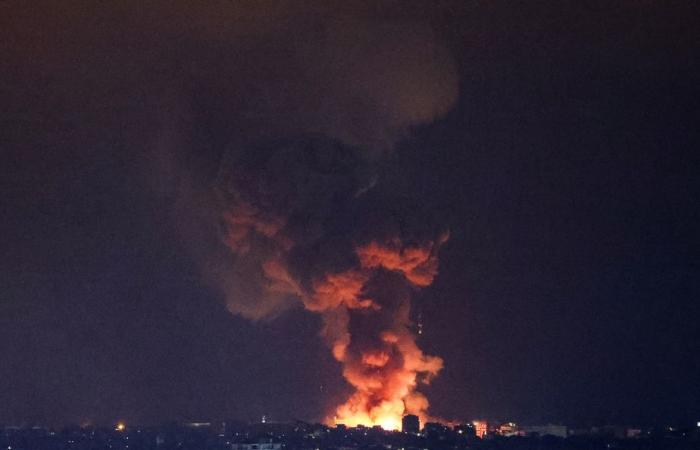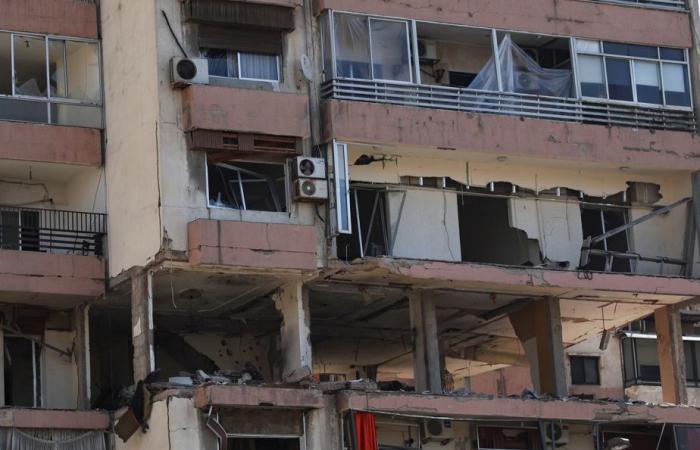(Jerusalem) The Israeli army is on alert on Sunday, for fear of attacks, on the eve of the first anniversary of the Hamas attack, and is preparing a response to the salvo of missiles fired by Iran, support of the Palestinian Islamist movement and the Lebanese Hezbollah.
Updated yesterday at 11:04 p.m.
Benoît FINCK with Layal ABOU RAHAL in Beirut
Agence France-Presse
What you need to know
- The UN secretary-general has called for an end to the “shocking violence” and “bloodshed” in Gaza and Lebanon.
- Monday, October 7, will mark the first anniversary of the unprecedented Hamas attack, which shocked Israel and sparked war in the Gaza Strip.
- This war has since spread to neighboring Lebanon, against its ally, Hezbollah.
Israeli Chief of Staff Herzi Halevi affirmed his determination to strike “without respite” against Hezbollah, against whom he has recently intensified its offensive.
“This week, we will commemorate the anniversary of the war and October 7, 2023. We are ready to increase our forces in anticipation of this day”, for fear of attacks, assured Saturday evening the army spokesperson Israeli, Daniel Hagari, without further details.
In a message on the occasion of this anniversary, Israeli President Isaac Herzog denounced “the permanent threat posed to the State by Iran and its terrorist proxies, who are […] determined to destroy our one and only nation-state.”
Israeli Prime Minister Benjamin Netanyahu is due to deliver a speech to the nation on Monday to mark the anniversary of this attack, which sparked the war in Gaza.
The unprecedented Hamas attack resulted in the deaths of 1,205 people, mostly civilians, shot, burned alive or mutilated, according to an AFP count based on official Israeli figures, including hostages who died or were killed in captivity in the Gaza Strip. Of the 251 people kidnapped then, 97 are still hostages in Gaza, including 64 presumed alive and 33 dead.
António Guterres, Secretary General of the United Nations, demanded, in a statement published on Saturday, the “immediate and unconditional release” of the hostages, while asking Hamas to “allow the International Committee of the Red Cross to visit these hostages “.
PHOTO PAMELA SMITH, ARCHIVES ASSOCIATED PRESS
António Guterres, Secretary General of the United Nations
“Since October 7, there has been a wave of shocking violence and bloodshed,” said Mr. Guterres. It’s time to free the hostages […] It’s time to silence the guns. It is time to stop the suffering that has engulfed the region.”
The Secretary General also expresses his concern about the extension of the conflict in Lebanon against Hezbollah, supported by Iran.
“The war that followed the terrible attacks a year ago is still destroying lives and inflicting profound human suffering on Palestinians in Gaza, and today, on the Lebanese people,” he said.
“Right to defend oneself”
After the salvo of missiles launched Tuesday by Iran against Israel, the army is “preparing a response,” an Israeli military official assured AFP on condition of anonymity.
“Iran has already launched hundreds of missiles on our territory twice […] Israel has the duty and the right to defend itself and respond to these attacks and that is what we will do,” Mr. Netanyahu also affirmed.
From Damascus, the head of Iranian diplomacy Abbas Araghchi warned that “for every action, there will be a proportional and similar reaction from Iran, and even stronger”.
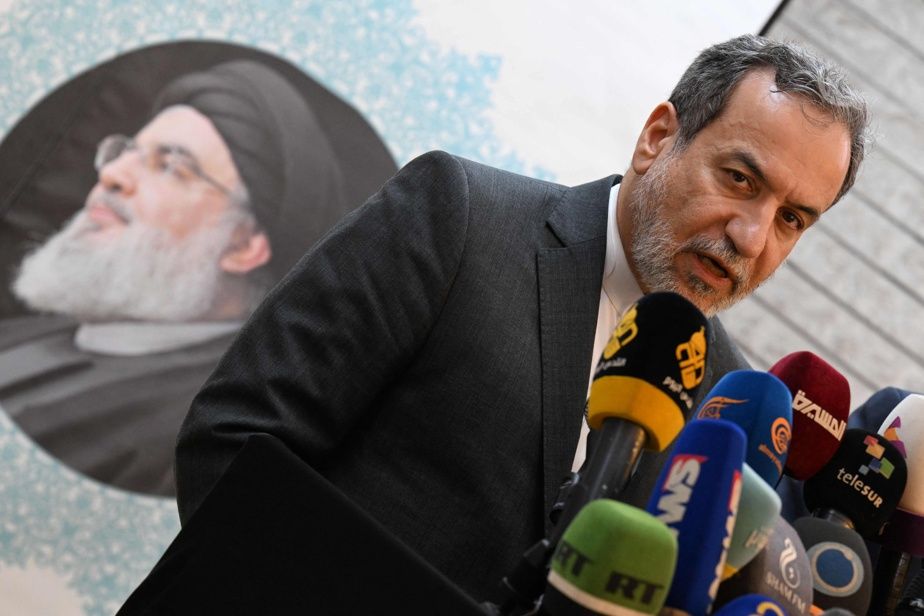
PHOTO LOUAI BESHARA, AGENCE FRANCE-PRESSE
Abbas Araghchi, head of Iranian diplomacy
According to Tehran, the approximately 200 missiles fired Tuesday towards Israel are a “legitimate” response to the assassination of Hassan Nasrallah, killed on September 27 in an Israeli raid on the southern suburbs of Beirut, and to that of Ismaïl Haniyeh on July 31 , the leader of Hamas, died in an explosion in Tehran blamed on Israel.
In April, Iran launched a first missile attack against Israel in response to a strike against its consulate in Damascus attributed to Israel.
US President Joe Biden has advised Israel against attacking Iranian oil sites. His predecessor and Republican candidate to succeed him, Donald Trump, suggested strikes on Iran’s nuclear facilities.
Contact with Safieddine lost
After weakening Hamas during reprisals still ongoing in the besieged Gaza Strip, Israel moved most of its operations in mid-September to the Lebanese front, opened by Hezbollah in support of Hamas on October 8, 2023.
The Netanyahu government wants to put an end to Hezbollah rocket fire and allow tens of thousands of displaced people to return to their homes in northern Israel.
Its army undertook a campaign of violent and deadly aerial bombardments on Hezbollah strongholds, which it intensified from September 23, before launching a ground offensive in southern Lebanon on September 30.
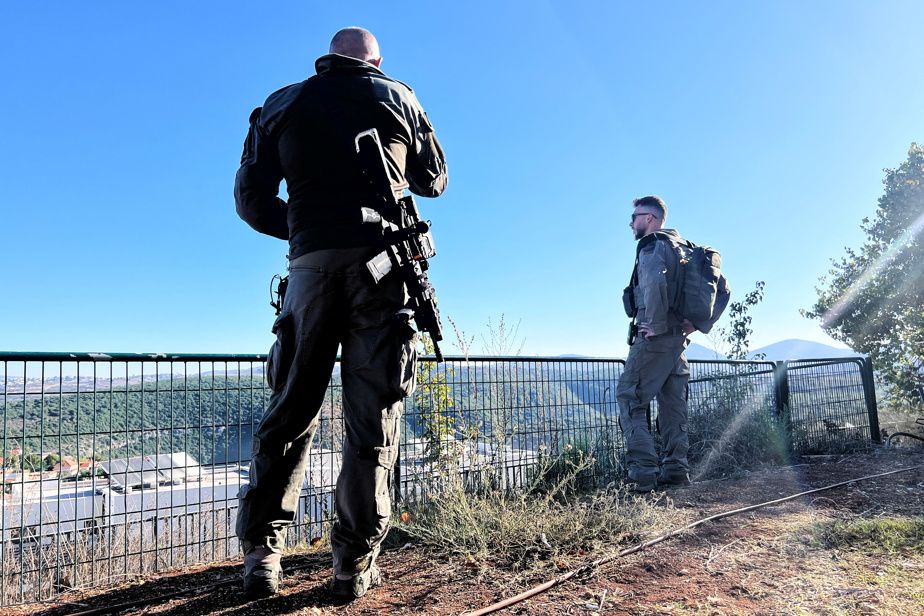
PHOTO AVI OHAYON, REUTERS
Israeli soldiers stand guard near the Lebanese border on October 4.
On Saturday evening, the Lebanese national news agency ANI reported five new Israeli strikes targeting the southern suburbs of Beirut and its surroundings, including four “very violent”, shortly after Israeli calls to evacuate several neighborhoods of this Hezbollah stronghold .
The Israeli army said it was “currently striking terrorist targets” of Hezbollah in the Beirut sector, in a statement posted on its Telegram channel.
AFP images show plumes of smoke rising from targeted areas as well as a large fireball projected into the sky.
AFP correspondents heard explosions in the south and outskirts of Beirut for more than two hours.
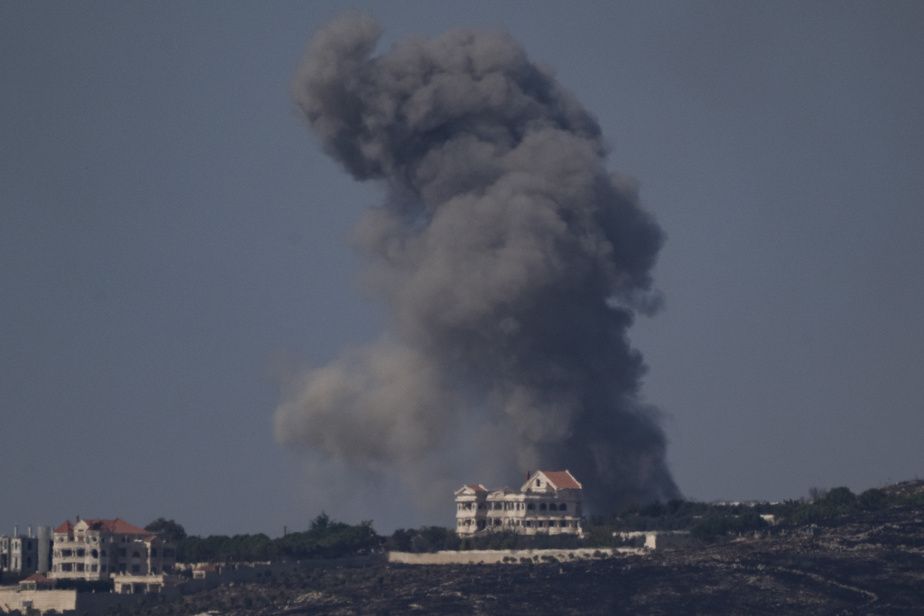
PHOTO LEO CORREA, ASSOCIATED PRESS
Smoke rises into the sky after Israeli bombings in southern Lebanon, seen from northern Israel, October 5, 2024.
An AFP correspondent near Sabra, close to Beirut’s southern suburbs, saw dozens of people in the streets, some carrying bags and fleeing on foot or motorbikes as explosions echoed in the background.
Hezbollah, for its part, assured that it had repelled an “attempt” to infiltrate the Israeli army in Blida, on the border, during the night from Saturday to Sunday.
“Endless Nightmare”
The Israeli army claimed to have, since September 30, “eliminated around 440 terrorists, including 30 commanders”.
On Friday, the Israeli army violently shelled the southern suburbs of Beirut, targeting, according to the Israeli news site Ynet, Hachem Safieddine, potential successor to Nasrallah who was considered the most powerful man in Lebanon. The Israeli army has not confirmed this information.
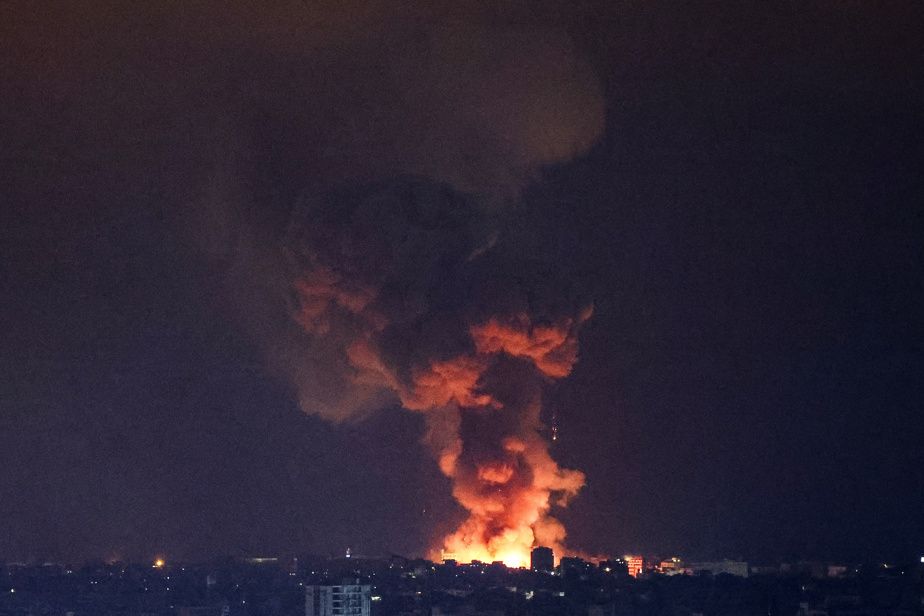
PHOTO AMR ABDALLAH DALSH, REUTERS
The southern suburbs of Beirut have been regularly shelled for several days by the Israeli army.
But a Hezbollah official said on condition of anonymity that contact with Hachem Safieddine had been “lost” since Friday’s strikes.
Since October 2023, more than 2,000 people have been killed in Lebanon, including more than a thousand since the intensification of Israeli strikes on September 23, according to the authorities. Around 1.2 million people have been displaced.
“We have been on the streets for 13 days,” said Salma Salmane, 30, who fled the southern suburbs to a neighborhood in central Beirut. “We are living a never-ending nightmare. »
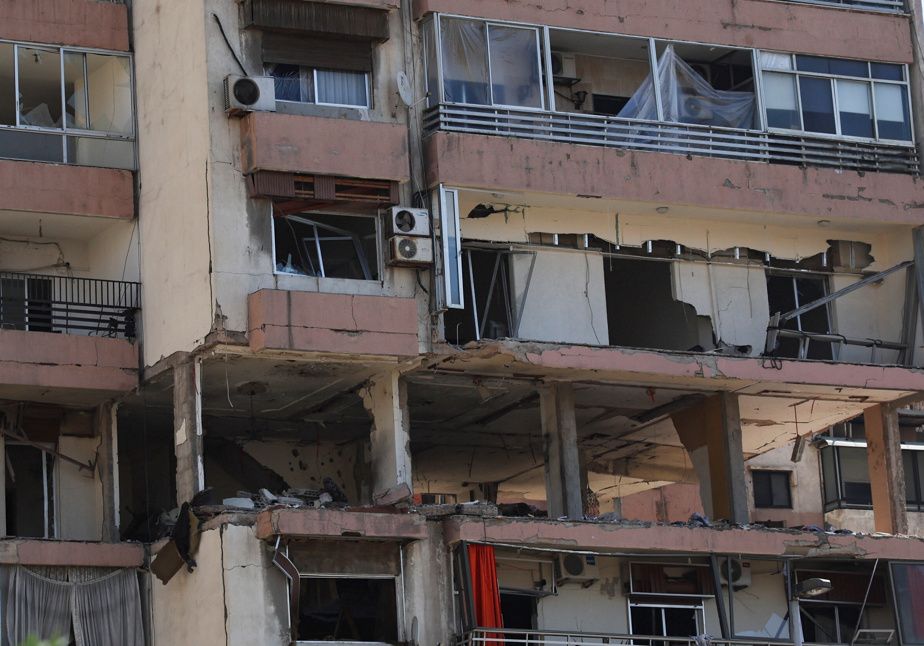
PHOTO AMR ABDALLAH DALSH, REUTERS
A view of a building damaged during an Israeli strike, in Kola, central Beirut, Lebanon, October 5, 2024.
” Shame ”
In the Gaza Strip, hungry and ravaged by 12 months of war, 12 people, including children, died in new Israeli strikes, according to rescuers.
Since the start of the war, 41,825 people have been killed in the devastated territory, according to the Hamas government’s health ministry.
French President Emmanuel Macron called on Saturday to stop deliveries to Israel of weapons used in Gaza, angering the Israeli prime minister.
Exchanges quickly took on the appearance of a crisis between the two countries. At such a level that the Élysée published a clarification in the evening assuring that France “is the unwavering friend of Israel” and deploring the “excessive” words of Benyamin Netanyahu.
“Shame,” replied the Israeli leader, addressing the French president and other Westerners calling for arms embargoes against his country.
Qatar, a key mediator in Gaza ceasefire talks, said Macron’s statement was “an important and welcome step towards ending the war”, while Jordan welcomed the call from the French leader.
The British Foreign Minister, David Lammy, for his part, considered the information on Israeli strikes which would have affected “health facilities and hospital staff” in Lebanon “deeply disturbing”.
US evacuates nearly 150 people from Lebanon
The United States evacuated around 145 new people from Lebanon on Saturday in two planes bound for Turkey, the US State Department announced, amid the intensification of the Israeli offensive against Hezbollah.
“Two State Department-organized flights enabled the safe departure of approximately 145 passengers from Beirut to Istanbul, Turkey, today [samedi] “, said a spokesperson for the State Department in a press release, which did not specify their nationalities.
Each aircraft could carry “300 passengers”, added the same source.
“So far, we have helped 600 U.S. citizens, permanent residents [au Liban]as well as members of their first family circle from Lebanon thanks to flights organized by the United States,” continued the spokesperson.
Since September 24, the State Department has “made more than 2,600 seats available” on commercial or US-chartered flights departing from Lebanon, with “hundreds” having been used, he added.
At the end of September, the State Department advised American citizens to leave Lebanon “as long as commercial flights remain accessible” and called on those who chose to stay to “prepare to take shelter in the event of a deterioration in the situation.”


